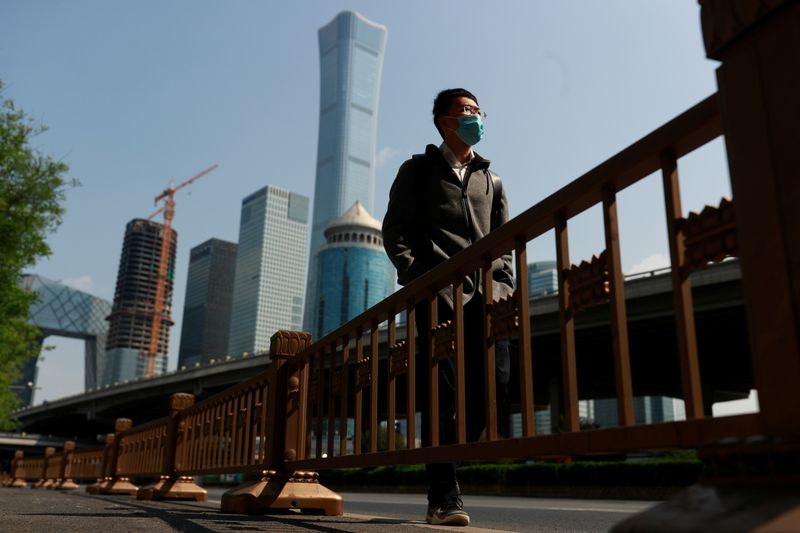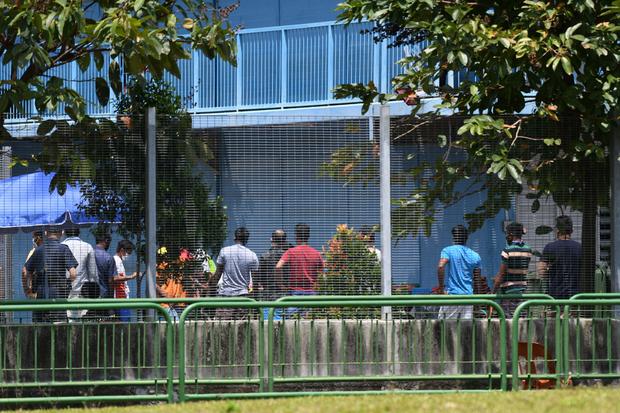
FILE PHOTO: A walks by Beijing’s Central Business District during morning rush hour as the spread of the new coronavirus disease (COVID-19) continues in China, April 17, 2020, REUTERS/Thomas Peter
April 20, 2020
BEIJING (Reuters) – China has plenty of room for manoeuvre in its macroeconomic policy to cushion against the impact of the coronavirus, officials at the National Development and Reform Commission (NDRC) said on Monday.
The potential measures would included increasing the fiscal deficit, issuing special treasury bills, ramping up local government special bond quotas, spurring spending in key projects and cutting the bank reserve requirement ratio and interest rates, said Yan Pengcheng, an official with the NDRC.
China’s economy contracted for the first time on record in the first quarter as the coronavirus shut down factories and shopping malls and put millions out of work. Gross domestic product (GDP) in the world’s second largest economy fell 6.8% year-on-year in the January-March quarter.
To counter the downturn caused by the pandemic, authorities will roll out more forceful, targeted fiscal, financial, pro-consumption and employment polices with relevant departments, NDRC officials said.
“The focus is on a more proactive fiscal policy and a more flexible and appropriate monetary policy to hedge the impact of the epidemic and prevent short-term shocks from becoming a trend,” said Yan.
In March, the NDRC approved eight major fixed asset investment projects worth 77.3 billion yuan ($10.92 billion), mainly in the energy and transportation sectors, bringing total investment in the first quarter to 262.6 billion yuan.
But that is still down almost 30% from the 370.3 billion yuan worth of such projects approved in the same period of 2019, Reuters calculations show.
Yan said the government was pledging to do “everything it can” to help struggling small firms by further reducing their taxes and fees, rent, and funding costs, and increasing fiscal subsidies on their loan interest payments.
It would also help exporters preserve market share and orders, and find opportunities in the domestic market as the pandemic reduces external demand.
Chen Guangsheng, a senior official of the coastal province of Zhejiang, one of China’s top export-oriented provinces, said on Monday at a briefing that over 70% of foreign trade companies in the province have suffered from cancelled or delayed orders, dealing a severe blow to industries at both ends of the supply chain.
The government also plans to shorten a foreign investment “negative list” this year to widen the access of foreign investment in the country, and deliver some foreign firms more tax benefits by expanding an “encouraged catalogue”.
Wu Hao, another NDRC official, said Beijing is studying new guidelines to develop high-tech industries, as it plans to accelerate 5G network deployment and upgrade fibre broadband networks.
(Reporting by Yawen Chen and Ryan Woo; Editing by Tom Hogue & Simon Cameron-Moore)

